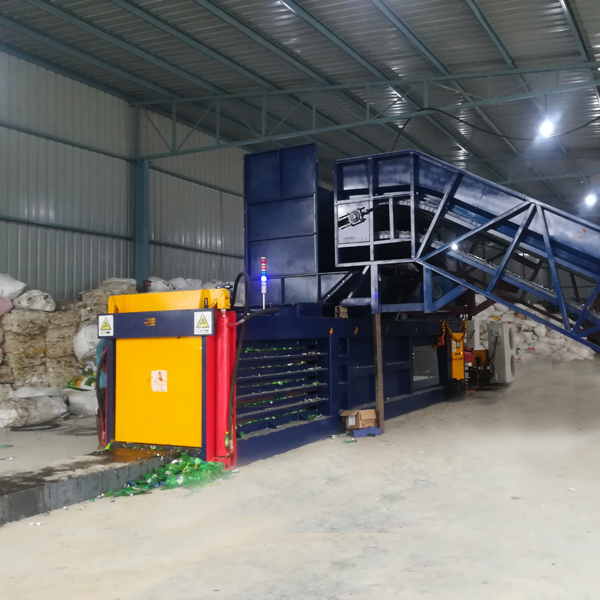Purchasing a plastic bottle baler is only the first step. Ensuring its long-term, stable, and efficient operation depends on proper daily operation and scientific maintenance. A standardized operating procedure and regular maintenance plan not only ensure operator safety but also extend the equipment’s lifespan many times over, maximizing return on investment and avoiding production interruptions and repair costs caused by unexpected failures.
When operating a plastic bottle baler, following safety procedures is paramount. Before each startup, perform a simple inspection to ensure the equipment is clear of obstructions and that the safety gates and light barriers are clean and effective. When feeding materials, be careful to avoid the introduction of hard foreign objects such as metal and stones to prevent damage to the pressure head and the inner wall of the silo. For semi-automatic models, strictly follow the manual to control the feed rate and avoid overloading. After baling, ensure that the bales are securely tied before removing them to prevent them from falling apart during handling.Maintenance focuses on the core components of the machine: the hydraulic system and mechanical structure. For the hydraulic system, the most important thing is to keep the hydraulic oil clean and the oil level within the specified range. Oil quality should be checked regularly (e.g., every 200-500 hours of operation), and hydraulic oil and oil filters should be replaced according to the manufacturer’s recommended intervals. This is crucial for maintaining stable system pressure and sensitive valve operation. Regarding the “mechanical components,” all moving parts, such as slide rails, bearings, and hinges, should be regularly greased to reduce wear and operating noise. Also, electrical wiring should be checked for wear and loose connections to electrical components.

The functional purpose of establishing such operating and maintenance habits is to prevent problems before they occur. Users may ask whether performing these maintenance procedures will take away from production time. However, the small amount of time and cost invested in routine maintenance is negligible compared to the high repair costs and days of downtime associated with major failures such as hydraulic system contamination, oil seal damage, or even cylinder strain caused by improper maintenance. A well-maintained plastic bottle baler will operate more smoothly, consume less energy, and last longer, ultimately creating greater value for the business.
Nick Baler’s plastic and PET bottle balers offer a high-efficiency, economical solution for compressing various plastic waste materials such as PET bottles, plastic film, HDPE containers, and shrink wrap. Ideal for waste management centers, recycling facilities, and plastic production companies, these balers can reduce plastic waste volume by more than 80%, maximizing storage capacity and streamlining transportation logistics.Available in manual, semi-automatic, and fully automatic configurations, Nick Baler’s equipment accelerates waste processing, lowers labor expenses, and boosts productivity for businesses engaged in large-scale plastic recycling operations.
Industries That Benefit from PET & Plastic Balers
Recycling & Waste Management – Compressing plastic waste, bottles, and packaging for recycling.
Manufacturing & Packaging – Reducing waste from production and post-consumer plastic materials.
Beverage & Food Industry – Managing PET bottles, plastic containers, and shrink wrap efficiently.
Retail & Distribution Centers – Baling excess plastic film, packaging waste, and used containers.
https://www.nkbaler.com
Email:Sales@nkbaler.com
WhatsApp:+86 15021631102
Post time: Oct-16-2025